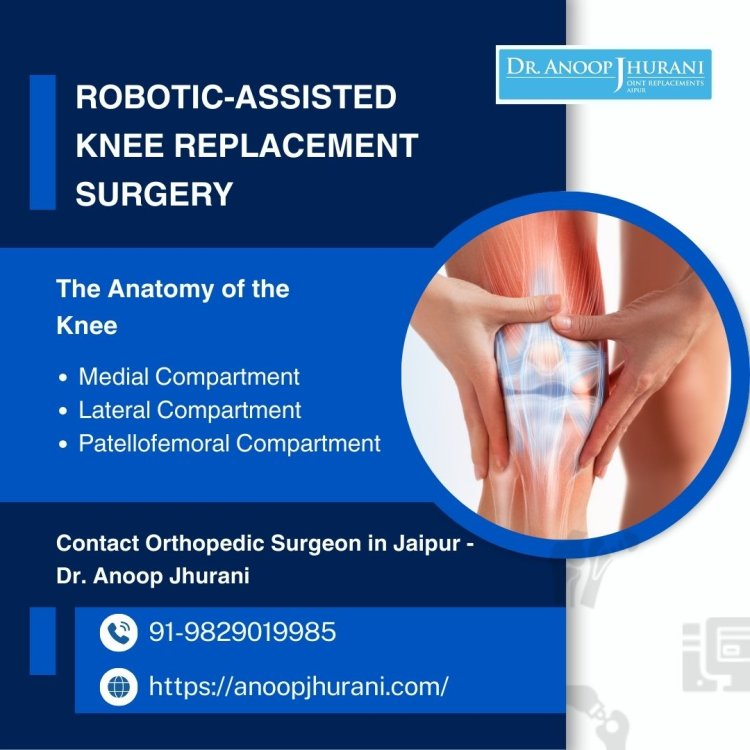Understanding Knee Anatomy, Osteoarthritis
Dr. Anoop Jhurani is one of the knee & hip replacement doctors in Jaipur. He has performed over 12,000 successful knee and hip surgeries.
Share this Post to earn Money ( Upto ₹100 per 1000 Views )

Knee pain and stiffness can significantly impact your quality of life, making even the simplest tasks challenging. One of the most common causes of knee pain is osteoarthritis, a condition that gradually wears away the protective cartilage in the knee joint. Understanding the anatomy of the knee, how osteoarthritis develops, and the available treatment options can help you make informed decisions about managing this condition.
The Anatomy of the Knee
The knee is a complex joint that connects the thigh bone (femur) to the shin bone (tibia). It is divided into three major compartments:
1. Medial Compartment: The inside part of the knee, closest to the other knee.
2. Lateral Compartment: The outside part of the knee, farthest from the other knee.
3. Patellofemoral Compartment: The front of the knee, between the kneecap (patella) and the thigh bone.
These compartments work together to allow smooth movement and support the body’s weight during activities like walking, running, and climbing stairs.
How Osteoarthritis Affects the Knee
Osteoarthritis is a degenerative joint disease that typically begins in the medial compartment of the knee. This compartment bears a significant portion of the body’s weight, making it more susceptible to wear and tear. As the protective cartilage in this compartment wears away, the bones begin to rub against each other, causing pain, stiffness, and inflammation.
Over time, osteoarthritis can spread to the other compartments of the knee, leading to more widespread discomfort and limited mobility. This progression can make daily activities increasingly difficult and painful.
Choosing the Right Procedure
Deciding between partial and total knee replacement depends on various factors, including the extent of the joint damage, the patient’s overall health, and their lifestyle needs. A thorough evaluation by an experienced orthopedic surgeon, such as Dr. Anoop Jhurani in Jaipur, can help determine the most appropriate course of action.
Dr. Jhurani specializes in both partial and total knee replacements, using advanced techniques like robotic-assisted knee replacement surgery to ensure precise implant placement and optimal outcomes. This technology enhances the accuracy of the procedure, leading to faster recovery times and improved knee function.
Conclusion
Osteoarthritis is a common cause of knee pain that can significantly affect your daily life. Understanding the anatomy of the knee, how osteoarthritis progresses, and the different types of knee replacement options available can help you make informed decisions about your treatment. Whether you need a partial knee replacement or a total knee replacement, consulting with an experienced orthopedic surgeon like Dr. Anoop Jhurani in Jaipur can provide you with the best care and the highest chances of a successful recovery.














